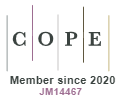Challenges in building an energy supply chain from urban solid waste: the role of institutional entrepreneurs
DOI:
https://doi.org/10.5585/2024.23089Keywords:
urban solid waste, waste-to-energy, institutional entrepreneurshipAbstract
Objective: Assess the role of institutional entrepreneurs in building a waste-to-energy supply chain from urban solid waste.
Methodology: The research’s units of analysis are the institutional entrepreneurs involved in constructing an energy supply chain at the Western Caucaia Municipal Sanitary Landfill, located in the state of Ceará. The case study, with a qualitative approach, was carried out through semi-structured interviews. The path dependence research technique was adopted to construct the historical pathway and content analysis.
Originality/Relevance: The supply chain investigated was created from a partnership involving the Ceará state government, municipal governments, and companies for the installation of the largest plant in the country capable of injecting biogas, originating from the anaerobic digestion of urban solid waste, in Ceará’s natural gas distribution company (CEGÁS).
Results: Institutional entrepreneurs can drive new institutional arrangements through the development of political, social and technical capabilities. Among the strategies identified, partner selection based on pre-existing trust relationships, and the actions of government actors were critical factors for the success of the energy supply chain from urban solid waste.
Contributions: The study contributes to understanding the role of institutional entrepreneurs in rearranging an energy supply chain. The work offers an analysis of political, social and technical capabilities, and contributes to the construction of sustainable cities with efficient waste management and attentiveness to the environmental and social impacts of unruly urban expansion.
Downloads
References
ABIOGÁS. (2019). Modelos de negócio para a expansão do biogás no Ceará. São Paulo: VI Fórum do Biogás. Retrieved from https://abiogas.org.br/arquivos-e-documentos/seminario-tecnico/
Abreu, M. C. S. de, & Freitas, A. R. P. de. (2015). Trajetória Histórica e Benefícios da Implantação do Mecanismo de Desenvolvimento Limpo em Aterros Sanitários. In Desenvolvimento em Questão (Vol. 13). https://doi.org/10.21527/2237-6453.2015.32.48-77
ACFOR. (2012). Plano Municipal de gestão integrada de resíduos sólidos de Fortaleza-Ceará. In Autarquia de Regulação, Fiscalização e Controle dos Serviços Públicos de Saneamento Ambiental. Fortaleza. Retrieved from https://urbanismoemeioambiente.fortaleza.ce.gov.br/images/urbanismo-e-meio-ambiente/infocidade/plano_municipal_de_gesto_integrada_de_residuos_solidos_de_fortaleza.pdf
Alonso-Almeida, M. del M., Rodriguez-Anton, J. M., Bagur-Femenías, L., & Perramon, J. (2021). Institutional entrepreneurship enablers to promote circular economy in the European Union: Impacts on transition towards a more circular economy. Journal of Cleaner Production, 281. https://doi.org/10.1016/j.jclepro.2020.124841
Bardin, L. (2016). Análise de conteúdo. São Paulo: Edições 70.
Battilana, J. (2006). Agency and institutions: The enabling role of individuals’ social position. Organization, 13(5), 653–676. https://doi.org/10.1177/1350508406067008
Biygautane, M., Neesham, C., & Al-Yahya, K. O. (2019). Institutional entrepreneurship and infrastructure public-private partnership (PPP): Unpacking the role of social actors in implementing PPP projects. International Journal of Project
Management, 37(1), 192–219. https://doi.org/10.1016/j.ijproman.2018.12.005
Borges, D. E., & Scherer, F. L. (2015). Empreendedorismo institucional no desenvolvimento do polo vitivinícola da Campanha Gaúcha. Revista Connexio, 2(fev./jul.), 107–122.
CEGÁS. (2020). A empresa: conheça a história da CEGÁS. Retrieved August 20, 2020, from https://www.cegas.com.br/a-empresa/
Ceglia, D., Abreu, M. C. S. de, & Da Silva Filho, J. C. L. (2017). Critical elements for eco-retrofitting a conventional industrial park: Social barriers to be overcome. Journal of Environmental Management, 187, 375–383. https://doi.org/10.1016/j.jenvman.2016.10.064
Chakhovich, T., & Virtanen, T. (2023). Accountability for sustainability – An institutional entrepreneur as the representative of future stakeholders. Critical Perspectives on Accounting, 91(November 2021), 102399. https://doi.org/10.1016/j.cpa.2021.102399
CicloVivo. (2018, April 17). Fortaleza inaugura maior usina de produção de biogás com lixo de aterro. Retrieved from https://ciclovivo.com.br/planeta/desenvolvimento/fortaleza-inaugura-maior-usina-produzir-biogas-com-lixo-de-aterro/
Collis, J., & Hussey, R. (2005). Pesquisa em administração: um guia prático para alunos de graduação e pós-graduação (2nd ed.). Porto Alegre: Bookman.
Creswell, J. W. (2010). Projeto de pesquisa: métodos qualitativos, quantitativos e mistos (3rd ed.). Porto Alegre: Artmed.
Cui, S., Tang, Y., Li, C., & Li, Y. (2023). A Bibliometric Analysis of Institutional Entrepreneurship Base on SSCI Database (1994-2021). 2023 7th International Conference on Management Engineering, Software Engineering and Service Sciences, ICMSS 2023, 141–147. https://doi.org/10.1109/ICMSS56787.2023.10118231
Deerfield, A., & Elert, N. (2023). Entrepreneurship and Regulatory Voids: The Case of Ridesharing. Entrepreneurship: Theory and Practice, 47(5), 1568–1593. https://doi.org/10.1177/10422587221093300
DiMaggio, P. J. (1988). Interest and Agency in Institutional Theory. In L. Zucker (Ed.), Institutional patterns and organizations: culture and environment (Vol. 1, pp. 03–21). Cambridge: Ballinger.
Diniz, G. M., & Abreu, M. C. S. de. (2018). Disposição (Ir)Responsável De Resíduos Sólidos Urbanos No Estado Do Ceará: Desafios Para Alcançar a Conformidade Legal. Revista de Gestão Social e Ambiental, Vol. 12, pp. 21–38. https://doi.org/10.24857/rgsa.v12i2.1412
Eisenhardt, K. M. (1989). Building Theories from Case Study Research. Academy of Management Review, 14(4), 532–550. https://doi.org/10.5465/amr.1989.4308385
Eisenstadt, S. N. (1964). Institutionalization and Change. American Sociological Review, 29(2), 235–247. https://doi.org/10.2307/2092126
Flick, U. (2009). Introdução à Pesquisa Qualitativa (3rd ed.). Porto Alegre: Artmed.
Grimm, J. H., Hofstetter, J. S., & Sarkis, J. (2023). Corporate sustainability standards in multi-tier supply chains–an institutional entrepreneurship perspective. International Journal of Production Research, 61(14), 4702–4724. https://doi.org/10.1080/00207543.2021.2017053
Hardy, C., & Maguire, S. (2008). Institutional Entrepreneurship. In R. Greenwood, C. Oliver, R. Suddaby, & K. Sahlin (Eds.), Handbook of Organizational Institutionalism. London: SAGE Publications Ltd. https://doi.org/https://dx.doi.org/10.4135/9781849200387
Heiskanen, E., Kivimaa, P., & Lovio, R. (2019). Promoting sustainable energy: Does institutional entrepreneurship help? Energy Research and Social Science, 50(June 2018), 179–190. https://doi.org/10.1016/j.erss.2018.11.006
Inderberg, T. H. J., Leikanger, I., & Westskog, H. (2023). Institutional context, innovations, and energy transitions: Exploring solar photovoltaics with hydrogen storage at a secondary school in Norway. Energy Research and Social Science, 101(May), 103147. https://doi.org/10.1016/j.erss.2023.103147
Jacobi, P. R., & Besen, G. R. (2011). Gestão de resíduos sólidos em São Paulo: desafios da sustentabilidade. Estudos Avancados, 25(71), 135–158. https://doi.org/10.1590/S0103-40142011000100010
Jacobus, A. E. (2014). Empreendedorismo institucional: o papel de empresas e suas associações na evolução da indústria de software e serviços no Brasil (Universidade do Vale do Rio dos Sinos, São Leopoldo). Universidade do Vale do Rio dos Sinos, São
Leopoldo. Retrieved from http://www.repositorio.jesuita.org.br/bitstream/handle/UNISINOS/4383/29b.pdf?sequence=1
Jolly, S. (2017). Role of institutional entrepreneurship in the creation of regional solar PV energy markets: Contrasting developments in Gujarat and West Bengal. Energy for Sustainable Development, 38, 77–92. https://doi.org/10.1016/j.esd.2016.10.004
Jolly, S., Spodniak, P., & Raven, R. P. J. M. (2016). Institutional entrepreneurship in transforming energy systems towards sustainability: Wind energy in Finland and India. Energy Research and Social Science, 17, 102–118. https://doi.org/10.1016/j.erss.2016.04.002
Larrinaga, C., & Bebbington, J. (2021). The pre-history of sustainability reporting: a constructivist reading. Accounting, Auditing and Accountability Journal, 34(9), 131–150. https://doi.org/10.1108/AAAJ-03-2017-2872
Li, D. D., Feng, J., & Jiang, H. (2006). Institutional entrepreneurs. American Economic Review, 96(2), 358–362. https://doi.org/10.1257/000282806777211775
Lima, C. R. G. de. (2013). Análise socioambiental da área do lixão do Jangurussu (Fortaleza-CE) e os impactos na comunidade do entorno (UNIVERSIDADE ESTADUAL PAULISTA (UNESP)). UNIVERSIDADE ESTADUAL PAULISTA (UNESP). https://doi.org/10.1190/segam2013-0137.1
Linnenluecke, M. K., Verreynne, M. L., de Villiers Scheepers, M. J., & Venter, C. (2017). A review of collaborative planning approaches for transformative change towards a sustainable future. Journal of Cleaner Production, 142, 3212–3224. https://doi.org/10.1016/j.jclepro.2016.10.148
Mahoney, J. (2001). Path-dependent explanations of regime change: Central America in comparative perspective. Studies in Comparative International Development, 36(1), 111–141. https://doi.org/10.1007/BF02687587
Mahzouni, A. (2019). The role of institutional entrepreneurship in emerging energy communities: The town of St. Peter in Germany. Renewable and Sustainable Energy Reviews, 107(March), 297–308. https://doi.org/10.1016/j.rser.2019.03.011
Makarichi, L., Jutidamrongphan, W., & Techato, K. anan. (2018). The evolution of waste-to-energy incineration: A review. Renewable and Sustainable Energy Reviews, 91(April), 812–821. https://doi.org/10.1016/j.rser.2018.04.088
Marquise, G. (2020). História. Retrieved August 20, 2020, from http://www.grupomarquise.com.br/grupo-marquise
Matias, J. L. N., & Menezes, L. T. de. (2018). Análise da política nacional dos resíduos sólidos à luz do paradigma do desenvolvimento sustentável. Revista Do Programa de Pós-Graduação Em Direito Da UFC, 38(jul./dez.), 277–288.
Mutz, D., Hengevoss, D., Hugi, C., & Gross, T. (2017). Opções em Waste-to-Energy na Gestão de Resíduos Sólidos Urbanos. Um guia para tomadores de decisão em países emergentes ou em desenvolvimento. Eschborn: Deutsche Gesellschaft für
Internationale Zusammenarbeit (GIZ) GmbH. Retrieved from http://protegeer.gov.br/images/documents/393/WasteToEnergy Guidelines GIZ 2017 -web PT.pdf
Ometto, M. P., & Lemos, E. L. (2010). EMPREENDEDORISMO INSTITUCIONAL, AGÊNCIA E MUDANÇA INSTITUCIONAL: uma contribuição ao institucionalismo organizacional. XIII SemeAD - Seminários Em Administração, 16.
Pan, S. Y., Du, M. A., Huang, I. Te, Liu, I. H., Chang, E. E., & Chiang, P. C. (2015). Strategies on implementation of waste-to-energy (WTE) supply chain for circular economy system: a review. Journal of Cleaner Production, 108, 409–421. https://doi.org/10.1016/j.jclepro.2015.06.124
Perkmann, M., & Spicer, A. (2007). “Healing the scars of history”: Projects, skills and field strategies in institutional entrepreneurship. Organization Studies, 28(7), 1101–1122. https://doi.org/10.1177/0170840607078116
Pimentel, L., Major, M., & Cruz, A. (2023). Collective Action in Institutional Entrepreneurship: The Case of a Government Agency. Emerging Science Journal, 7(2), 538–557. https://doi.org/10.28991/ESJ-2023-07-02-017
Qiu, Y., Chen, H., Sheng, Z., Zhang, J., & Cheng, S. (2022). Institutional Entrepreneurship and Megaproject: A Case of the Hong Kong-Zhuhai-Macau Bridge. IEEE Transactions on Engineering Management, 69(6), 3053–3067. https://doi.org/10.1109/TEM.2020.3025720
SNIS. (2020). Diagnóstico do Manejo de Resíduos Sólidos Urbanos - Sistema Nacional de Informações sobre Saneamento (SNIS) - ano base 2019. Ministério Do Desenvolvimento Regional, Secretaria Nacional de Saneamento, 246. Retrieved from www.snis.gov.br
SNIS. (2021). Diagnóstico Temático Manejo de Resíduos Sólidos Urbanos. Visão Geral. Ano de referência 2020. Sistema Nacional de Informações Sobre Saneamento (SNIS), 1–59. Retrieved from www.snis.gov.br
Svejenova, S., Mazza, C., & Planellas, M. (2007). Cooking up change in haute cuisine: Ferran Adrià as an institutional entrepreneur. Journal of Organizational Behavior, 28(5), 539–561. https://doi.org/10.1002/job.461
Tiberius, V., Rietz, M., & Bouncken, R. B. (2020). Performance analysis and science mapping of institutional entrepreneurship research. Administrative Sciences, 10(3), 69. https://doi.org/10.3390/admsci10030069
Tracey, P., Phillips, N., & Jarvis, O. (2011). Bridging institutional entrepreneurship and the creation of new organizational forms: A multilevel model. Organization Science, 22(1), 60–80. https://doi.org/10.1287/orsc.1090.0522
Tracey, P., & Phillips, N. W. (2011). Article in Management International Review. (February). https://doi.org/10.2307/23012233
Yin, R. K. (2015). Estudo de caso: planejamento e métodos (5th ed.). Porto Alegre: Bookman.
Downloads
Published
How to Cite
Issue
Section
License
Copyright (c) 2024 Autores

This work is licensed under a Creative Commons Attribution-NonCommercial-ShareAlike 4.0 International License.









